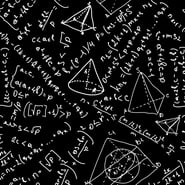 Many people continue to believe that you are either a math person, destined to be able to do math easily, or you’re not. If you’re not, math classes will always be hard, and you’ll never be comfortable with numbers and calculations. This type of thinking is seriously misguided, and really sends the wrong message to any student that is exposed to this idea.
Many people continue to believe that you are either a math person, destined to be able to do math easily, or you’re not. If you’re not, math classes will always be hard, and you’ll never be comfortable with numbers and calculations. This type of thinking is seriously misguided, and really sends the wrong message to any student that is exposed to this idea.
Improving Academic PerfORMANCE
Learn how to improve yourself through targeted learning and improved study skills.
Posts about studying:
Creative Ways to Increase Student Motivation and Improve Grades
There are a few things we know for sure about individuals who perform really well in school, get really good at a sport, or become highly skilled musicians or artists. And if you think one of those things involves having a special gift, an innate talent, or an especially high IQ, you’d be wrong. The latest science suggests that the following concepts and questions factor heavily into whether a student builds skill and ultimately performs well in any given academic, athletic, or artistic domain:
How 1% improvement can turn an F into an A
 Most students don’t realize how small, incremental improvements can accumulate over time to create significant jumps in skill level or academic performance.
Most students don’t realize how small, incremental improvements can accumulate over time to create significant jumps in skill level or academic performance.
Let’s begin by exploring some theories about performance and success that have a lot to do with becoming comfortable struggling and striving to make small improvements. Later, we’ll show how a seemingly small improvement of just 1% a week can turn an F into an A.
